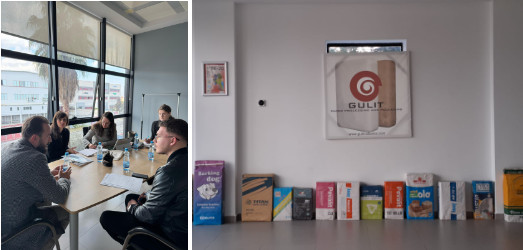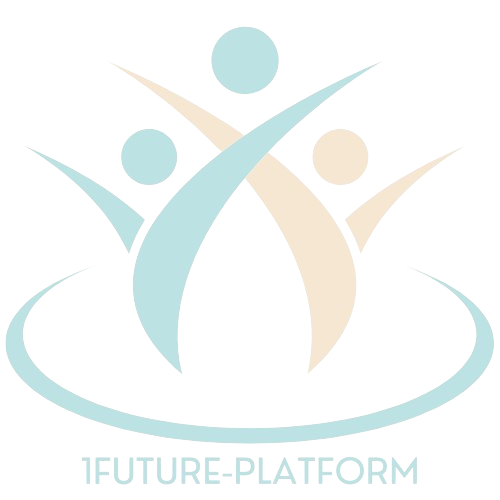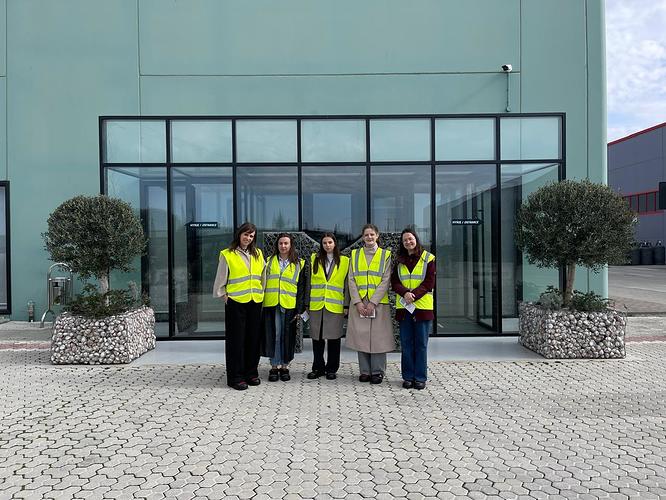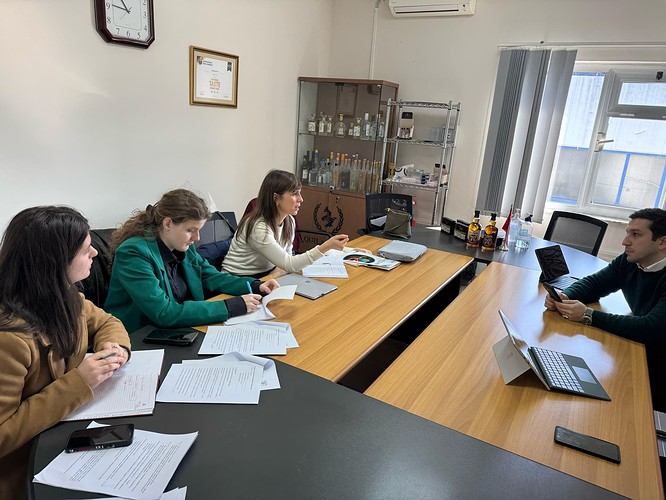Have you ever thought about what goes into making a simple paper bag?
Our visit to GULIT SH.P.K. gave us a behind-the-scenes look at the sustainable choices shaping this industry.
GULIT SH.P.K. is a leading Albanian company specializing in the production of paper bags for the construction sector (TITAN, DEKOLL, KNAUF) and the food industry (flour bags). This visit provided us with valuable insights into their production processes, sustainability efforts, and future strategies.
It was fascinating to see how GULIT SH.P.K. prioritizes environmentally friendly materials. They use starch-based adhesive (derived from potatoes) and water-based printing ink, reducing harmful emissions and making the final product 100% recyclable. Additionally, all production waste is sent for recycling to Edipack in Durrës, ensuring minimal environmental impact.
Another key topic of discussion was energy consumption. Printing machines are the largest energy consumers, and while the company has invested in new machinery with inverters for greater efficiency, they are now evaluating the installation of solar panels to further reduce their carbon footprint.
The company is also making significant strides in workforce training and development, focusing on enhancing employee skills to ensure high production standards. It was particularly inspiring to see women actively working in the factory, contributing to an industry traditionally dominated by men.
As part of our study, we are working on a report assessing the environmental footprint of GULIT SH.P.K.’s paper bags. Our research will analyze the entire product life cycle, from raw materials to production and recycling, with the goal of identifying opportunities for further sustainability improvements.
Our visit to GULIT SH.P.K. was not only informative but also inspiring, revealing how the blend of traditional craftsmanship and innovative, sustainable practices can drive success both domestically and in export markets.
A huge thank you to Ramiz Abili (Owner) and Besjan Elezi (Foreign Affairs And Export Chief Officer) for hosting us and sharing their valuable insights. Also, special thanks to Professors @elonapojani & @PersetaGrabova , and my team for their collaboration on this project!




